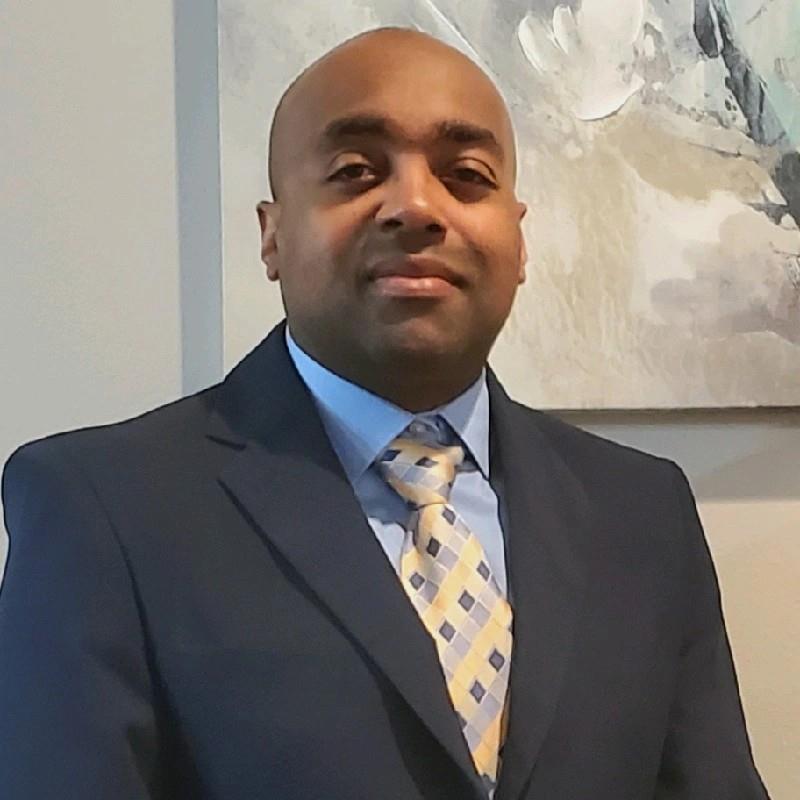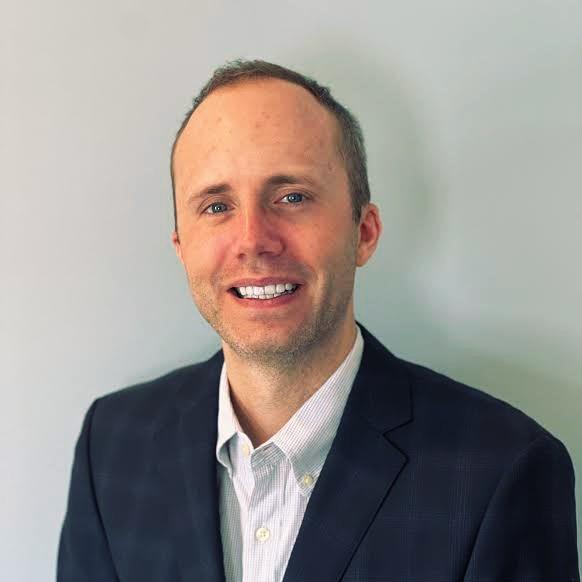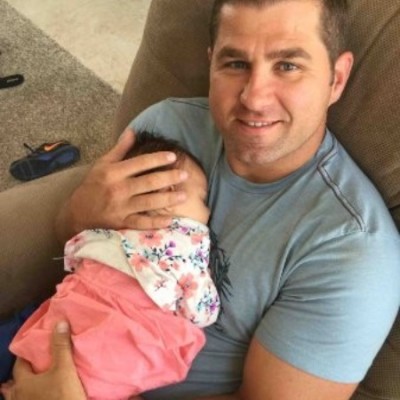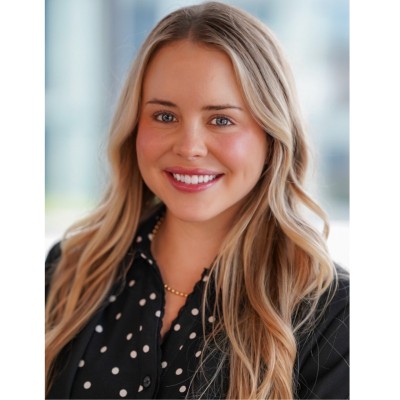
One profession in the medical field is typically out of the spotlight but contributes significantly in saving lives: a clinical sales specialist. They are responsible for expanding the utilization of a certain product within an existing account while working hand-in-hand with doctors and patients, even during procedures themselves. Steven West, a Clinical Sales Specialist III of Boston Scientific, sits down with Samuel Gbadebo to share his experiences in this profession after transitioning from being a US Army veteran. He explains his responsibilities in this position, how he uses his military training in doing sales, the major challenges he struggles with, and how he creates connections with people. Steven also discusses the top three qualities every clinical sales specialist must possess to find success in their field.
—
Watch the episode here
Listen to the podcast here
Transitioning From The US Army To The Life Of A Clinical Sales Specialist With Steven West
We have with us an Army Field Artillery Officer. He goes by the name of Steve West. This is an interesting episode because Steve gets into, not just the transition from military life directly into medical sales life because he made that immediate jump, but into his actual specific role. His role is a little unique because he is a clinical specialist. A lot of you might know exactly what that is, but it looks a little different depending on the company you work for. The major differentiation is a clinical specialist is not the same thing as a sales rep. Where a sales rep is focused on getting new business, a clinical specialist is focused on helping existing businesses. He spends more time coaching providers on how to use the product as opposed to ever selling it. His unique product is unique in the medical sales space because it’s not a device. It’s a hydrogel. It’s utilized to support radiation treatment. I’m not going to spoil it, I’m going to save it for the interview. If you’re interested in this role, you want to read this. If you’re a veteran, you want to read this. If you wonder what other types of products are out there in the medical sales space, then again, you want to read this.
—
Steve, how are you?
I’m good. How are you?
I’m very good. We have with us, Steve West. He is a veteran in medical sales. Steve, why don’t you go ahead and tell us a little bit about who you are and what you do?
My military history and why he alluded to me being a veteran, I was in the Army for about six years as a Field Artillery Officer. After that, I made my transition and went straight into medical sales. Initially, I interviewed with a company called Augmenix, who primarily had one product called SpaceOAR. I’m still with that product but a new company, Boston Scientific is the company now. They bought out my previous company, Augmenix. What I do with this product is I’m a clinical sales specialist for that product. Not your typical sales manager or territory rep, I’m more in the clinical role where I’m doing case coverage, building and expanding utilization within accounts. That’s what I’ve been doing since I got out.
When you say clinical specialist, I want you to help our audience understand the exact difference between an account sales rep and a clinical specialist.
I get asked this a lot from other veterans that are on their way out. They see my success, what I’ve done, where I’m at, and they asked me, “Is sales for me?” I tell them there are multiple ways to get into the industry. Sam, you know that for sure. My role specifically and the difference between a sales rep, as the clinical, it’s my role to be there for the doctors in the procedures. Their staff teach them how to use our products. Also within that account, expand utilization. For instance, for my product alone, it deals primarily with prostate cancer patients. If the doctor is only placing SpaceOAR at about 3 out of his 5 prostate cancer patients, I want to get them to that spot.
It’s more of not necessarily an inside sales but expanding my product’s utilization within an existing account. On the flip side and the way that I explain it is for the territory manager, sales rep or whatever term your company that you’re pursuing uses, it’s all different. The sales manager is bringing on new business. They’re out there doing the cold calls with a doctor, setting up appointments, getting doctors that aren’t using my product or our product to start using it. It’s a little bit different. I’m getting the doctors that are already using it to use it more if acceptable. The other role, the sales manager, is bringing on people that aren’t doing it.
How close did you work with the sales manager and the sales rep?

The way that my company structured our product line is for the majority of territories, there’s one sales manager and one clinical rep in each territory. Some territories don’t all have a clinical but the majority of them do for at least my product. We work together day in, day out. It’s extremely beneficial to have a team in the territory, one that’s expanding that utilization. Every day, they’re doing a case, I’m in there with the doctors. I’m getting that face-to-face with them, building that relationship and rapport, which ultimately drives any territory’s success. It also gives the sales manager the time of day to not necessarily focus on that and he can go and focus on driving new business. Having that dynamic is important and ultimately what has helped us get so successful.
You said you attend these cases. What are these cases? What are the typical procedures?
For those that aren’t familiar with prostate cancer, there are three types of treatment. You can either get a surgery where they remove the prostate. You can opt in to have radiation treatment where they radiate the prostate, or you can be what’s considered put on active surveillance where a gentleman that’s older or younger, and it’s not as severe of cancer. They might say, “Let’s watch it and see how it develops over time. We don’t need to take any further steps right now.” My product, SpaceOAR, is primarily used with radiation treatment. What it does is it’s a hydrogel that’s put in between the prostate and the anterior rectal wall. It pushes that prostate up and away from that rectal wall. Whenever that prostate is getting radiation treatment, that rectal wall is safe. It acts as a barrier to push that rectal wall away. Before SpaceOAR, a lot of prostate patients have what’s considered rectal toxicity. That’s primarily why they have bleeding or some lack of function in the sphincter. With my product, that’s disregarded by all means. It’s helped over 40,000 patients so far since we got FDA approval in 2015, and hopefully, we can get all of them in the future.
To be clear with the audience, even though you’re the clinical specialist and you’re helping providers utilize this product, you’re not attending any procedures.
No, I’m not medically certified, I’m not allowed to do the actual procedure. With my expertise and knowledge of the procedure, I can teach and coach the doctors and his staff on making the procedure flow easier and even do it. Radiation-oncologist is one of our call points. The other is a urologist. Urologists are all busy surgeons. They’re used to using needles, poking people, and all that. Radiation-oncologists might not be, and that’s okay. Given their background, it’s not as familiar to them to be poking patients with stuff. That’s where I come in to help bridge that gap for those doctors and some get it right on the ball, some don’t, and that’s all right. Everyone is different, but I’m there to help and be there as a patriot for them to learn and do better.
What I’m getting at is it’s not like you’re in the room, coaching.
I’m in the room. I’m in the OR. I’m masked up. Sometimes they’re awake and I’m talking to them.
You’re talking to patients?
My procedure can be done under local anesthesia or under general. Sometimes, the patients are awake. It’s super interesting. It’s been a great way to connect with some older vets. Vietnam vets are around the ages of prostate cancer range and so it’s been a great time getting to learn and meet new veterans.
[bctt tweet=”Keep a working time management, always be consistent, and remain confident in anything that you do.” via=”no”]
Do you develop relationships with these patients or is it patients in, you’re there for the procedure, you coach the physician on utilizing this product, and then that’s it?
It’s pretty much it. My territory is all of Tennessee and a part of Mississippi, so it’s hard to keep contact with people that are in Memphis. They’re all doing their own thing.
With that level of insight, you get direct feedback on how everything is going directly from the patient.
Almost immediately. From the doctor too, so it’s great.
That’s an exciting role to have. What is the demand on that type of role? Is it 9:00 to 5:00? Are you working extra hours here and there? How does it look on a typical day?
I would say it mirrors the sales manager or territory reps’ schedule which the majority of time, sales reps have their own schedule. In that regard, yes. When I’m not doing case coverage, it’s on me to go and visit accounts and make sure that they have brochures, if they need anything with marketing, or if I’ve set up something with marketing, if they’re doing that. I’m following up with all that stuff. It’s not necessarily a 9:00 to 5:00. It’s me managing my own time.
How often are you doing actual cases?
That depends. I would love to do them every day. For instance, this week I have cases Tuesday, Wednesday, and Thursday, so I have none today and Friday. It changes depending on what the officers have.
Did COVID affect how often you can attend your cases or is this something that’s so necessary, you still have to be there?
Yes and no. I say yes because it did affect our ability as a team, as the sales managers and the clinicals to be able to get into accounts outside of case coverage. However, there are instances, and this is why I said no, where if there is a procedure and I need to be there, then I have to be there regardless of COVID. We’ve been taking all the precautions that everyone else has and so far, it’s been great. I still love it because I get to get out of the house.

Let’s take it back to who Steve is now. Tell us what got you into the military? What branch of the military are you in? How long were you there? Give us some of the load on how that part of your career even came about.
I don’t know if this is too far, but I was a kid in high school. I was wrestling at that time. I was put in a position where I had done well enough to pursue college for the sport. Based on that decision-making process, I narrowed it down to West Point. I went through the Academy. I made that decision because I wanted to be in the military. Not as much now but when I was a little kid, it’s every boy’s dream, grow up to be a soldier, go and fight and do all that stuff. That was exactly where I was at eighteen. I was all about it. After going through the Academy and being in the Army for about six years, I decided that this wasn’t the profession for me and that’s all right. I volunteered, I did my time, I’m super prideful of it. I would do it all over in a heartbeat for sure. In the Army though, specifically I was a Field Artillery Officer. Howitzer’s cannons, MLRS and stuff like that is what I was in charge of. That’s pretty much my history.
How did you find out about medical sales?
When you’re in the military, the Army specifically has done a good job about this stuff lately with helping soldiers transition out. They changed their motto to “Soldier for Life” where it was an Army of One, but now it’s Soldier for Life is the thing that they’re pushing forward. They’ve done a fantastic job. That’s a great marketing plan for them, as a little tidbit. With that motto in place, though, what they do is they play a very big role in helping veterans and soldiers that are transitioning out of the Army get put into placements. I’m a little bit different than the last guys we had on the panel podcast with Kyle.
Kyle used one of the recruiting firms. I had too, but first and foremost, I went through a program called The Corporate Fellowship Program over here at Fort Campbell in Kentucky. What this program does, the Army set it up to where your last 2 to 3 months of time and service, you get to spend with an actual company in a corporate setting and learn the ropes. You have to see what it’s like, not putting on a uniform every day, not doing the ins and outs of being a soldier every day.
I got that transition and that aspect of it before going through a recruiting firm and ultimately ending up where I am now. When I went through the recruiting firm, they set you up with these not necessarily job fairs, but they bring all these other companies that want to hire veterans specifically. You’ll be with them throughout the day. You’ll have five interviews in one day, you’ll wake up, you go back and do another five interviews with five different companies. One of those companies happen to be Augmenix. That’s how I got to where I am. I’m so fortunate.
I’m sure you had perceptions before you joined Augmenix. What’s the difference between what you expected and what you’re doing?
I would say my expectations were lower than what they should have been. I am so much happier, not that I wasn’t happy in the military, but I thought it might be the same thing, but corporate life. It was far more than that. The team that I have now, my managers, everybody are fantastic people to work with. In the Army, you get put in places and under leadership working with peers, you don’t get to decide that. Ultimately, I don’t necessarily, but I do in a sense because I’m free from that contract with the military. Without a doubt, I would choose these people through-and-through to work with every day. They’re a great team. Boston Scientific is a fantastic company. I couldn’t say a bad thing about any of them. It’s been a pleasure to work with them. As I said, I’m fortunate to be in the position I am for sure.
Tell us what makes a successful clinical specialist. In your role with your type of product working for your company, give us the top three things that make an effective, good top performer.
[bctt tweet=”Attitude is the number one thing that will drive your business further.” via=”no”]
Off the top of my head, I would say the top three things that in any role that you have whether it’s a clinical, sales rep or anything, you have to have good time management. You have to be consistent, and that’s not only just by showing up at procedures but consistent with your communication with your accounts. You don’t want to lose that relationship that you’ve built in your first few interactions with them. Consistency, and then confidence. Confidence is key in any position. I’m going to add a fourth one because it came to me. I was reading a sales book. I can’t remember the title, but the book’s whole impetus was talking about your attitude. Your attitude and sales is the number one thing that’s going to drive business. Without a doubt, I don’t know why I didn’t put that first, but that would be my first thing. You’ve got to have a good attitude. If you don’t have a good attitude when you go into the account, you’re probably not going to get business without a doubt. That’s hands down. If you don’t have a good attitude when you go into a meeting with your manager, it’s not going to be a good meeting. That’s my outlook on it. That’s been my approach for the past few years.
With the clinical specialist role, as a sales rep, you’re incentivized on making sales. As a sales manager, you’re incentivized on your team making sales. For those that are curious about that type of career track, how is a clinical specialist incentivized?
The financial compensation and incentive are a little bit different than a sales rep. Whereas my instance financially is all salary and there is a bonus. That bonus is based on that variable comp that your quota or that number. That’s part of it. The other part of it and this is why I lean back on the attitude portion of what I said is a self-motivating incentive. You have to want to get out there and do better for yourself and for your team to get that bigger variable comp. That’s the most important thing for sure.
It’s almost like retaining businesses. That’s your performance metric, how much business can you retain?
This might be different for other companies, and even product lines within Boston Scientific are a little bit different, but because I have a shared role and interest with my sales manager in my territory, our incentive is to meet the quota together. If that’s him bringing on new business or me expanding business within accounts we already have, we’re trying to get to that same common goal.
Give us some of the challenges, if any, of coming from the military and getting into a medical sales role. I would assume there are challenges of going from military life to civilian life. Any challenges that you’ve particularly dealt with getting into your role or you’ve experienced within your role?
One specifically for medical sales is that time management and the change of life. In the military, you have a very regimented lifestyle. Every day is planned out for you or you’re planning for someone else. You have that timestamp of what you’re doing throughout the day for the entire year. You know when those training exercises are coming up, when you’ve got to go to the range or do PT, you know all of that. As I’ve mentioned in a sales role or even a clinical role, that’s all up to you. You have to drive your own business. It might be intimidating at first, but the skills and values that the Army instills in individuals and veterans specifically make them more successful in that type of role.
They might not know that. I didn’t know that right. I had no idea I was going to like medical sales or that clinical role. I love that ability and the freedom to do what I need to do and get it done the way I want to get it done. My managers have done a fantastic job of allowing me to do so. That was one of the biggest challenges. Some minor things are getting used to talking to people. It sounds easy, but it’s not. I think back to times as a captain where I’m talking to a Colonel or General and I’m locked up frozen. When I first got into this role, I remember talking to the doctors and lock it up like, “They’re going to make me do pushups.” Getting over those initial fears and out of your comfort zone a little bit, trying to open up your personality and be human. That’s the best thing about it. Overall, have a good attitude.
One thing that we talked about during the panel that we’re talking about again now is, you said that a veteran might come into this space and not realize how good a skillset they have for discipline to set their own schedule and get things done.

I’ll even elaborate on that. Kyle brought it up in the panel because me and Kyle are both Field Artillery Officers. In that role, one of the things that we had to do every training exercise was trying to convince our maneuver commander to use and utilize the field artillery. We’re doing a sales pitch to him. He might be a battalion commander but we’re trying to convince him and sell him to use our product or, in this sense, artillery in his operations. You’ve got to step back and look at what you’ve done in your military career, bridge that gap again, and figure out, “Is this something I want to pursue? How can I translate this experience from the military into this role?” You’ll find that you can do that without a doubt. Whatever you did in the military, there are things that you can pinpoint, figure out, and expand upon when you’re interviewing and trying to pursue a career in medical sales.
One other thing that was talked about last time we were all together was how everything is a mission. In sales, we have those client accounts that they’re challenging. We’re going to get the business, but they’re giving us every obstacle to get the business. Would you say that you’ve been able to handle those types of challenges any differently or you’ve had more success than others with a difficult customer and being able to turn them into an actual customer for your business?
Yes and no. Going back to what I labeled as my top three plus one thing, consistency. That’s natural for a veteran, either Army or Navy, whatever your background is, but want to keep pushing forward and accomplishing a mission like you’re saying. That drive and that motivating factor helps you build a business. I remember my first time going into a cold call with a doctor, my sales manager was like, “You’re already over in that area. Why don’t you go into his office and see if you can get some time with him?” I was like, “Do we have a meeting with them?” I was freaking out. I’m like, “I don’t know how to talk to this guy. Am I going to have to stand at attention?”
Facing that fear, pushing through that barrier, and talking to them. I met that gatekeeper at the front and she was like, “He doesn’t have time.” I’m like, “I’m giving her my spiel.” She’s like, “Let me go check.” I got 30 minutes with the doctor. That doesn’t seem like a lot of time but it was a ton of time. I got the unit through the entire sales thing. That consistency, attitude, and approach to it, the values of the Army, and what they instill in you as a veteran can help you in that situation and many more in that career. It’s extremely valuable to have veterans in your organization. Most people know that by now.
For the future, Steve, where do you see yourself? I’m talking five years out. Is leadership something you look towards? Have you found the sweet spot? Do you want to stay in this role and ride it out? Where do you see things?
I would love to get into a managerial role. Not necessarily the sales manager role or sales rep role, but the one above it. It’s like a regional manager, territory manager, VP of a region, or anything. That’s my goal. I want to be over people and lead them. That’s going back to why I initially even joined the Army. I love leading people, in charge of people, managing people, being there for them, or being someone that they can talk to. Seeing them grow as individuals, that’s where I want to be 100%.
With all the wisdom you have gained now, what would you tell yourself right before you started?
I would tell myself to get over the fear and push forward. I could go on and on about all these different instances where I was sitting in my car, waiting to go into a doctor’s office, trying to think of exactly what to tell them to get them to buy my product. You can do that all day, sit there, and be anxious. If you get in there, be human. Have a good attitude, get over that fear, and push in there, you’re going to do well. I wish I would’ve known that earlier in my career because there’s plenty of times and I’m not going to lie where I sat in my car and I was like, “Should I go in there? Will I tell this front desk lady this?” She’s going to be like, “No.” It’s playing it all out in my head, but if I go in there and like I did, they’re like, “You can talk to him.” You’ve got to get over the fear and drive on. I would say 100% tell myself to drive on and push.
The last thing I’ll say, when it comes to veterans that want to enter the industry, do you think it’s valuable for them to look into any services that would help them develop their interviewing skills, how they communicate, and a reason why they want to get into the roles they want to get into?
[bctt tweet=”Keep moving forward and accomplish any mission you have been given.” via=”no”]
We touched on it briefly where you can find and pinpoint those things that you’ve done in the military and translate those into a sales category, role, or whatever you want to call it. Having a program or some person to lean on, train you, and coach you in that manner to get to that point that knows the industry and how to translate that knowledge and experience, without a doubt would be super helpful, as well as interviewing. I’ve never had to interview for any position I had in the military. It’s not an easy thing to sell yourself without having any sales experience. Having a coach in your corner, without a doubt, I would have 100% every single time I interviewed. Even if I was to change jobs now, I would go back and reach out to some of the people that helped me get this one and ask them, “How do I do this again?” It’s always great to have a coach in your corner.
Any last thing you want to share with our audience?
We touched on it last time. I’m a huge advocate for veterans. If you want to reach out to me, Samuel has my contact. You can reach out to him. Get in contact with me if you have any questions about my background, my experience, or even how I ended up in this role. We touched on it in the show but if you have any last questions, feel free to reach out. I’m always open to talk to veterans or anyone for that matter.
Thank you so much for the time, Steve. We look forward to keeping up with you and seeing what the future brings.
Thanks, Sam.
Take care.
—
What I liked about that episode is how Steve went into facing the fear. We talked about values, what makes a good rep, and a lot of things come up that we’ve heard before. Good time management, having a good attitude, and being very consistent, these are values that you learned in the military. To be a good professional, you want to be practicing. Staring fear in the face and pushing through to make things happen and get some results within your territory, that’s something that we’ve got to remember. I’m sure in the military, that is they’re facing for all the time from the way they’re trained to the actual real-life experiences. To be able to take that attitude into this role within the medical device sales space, it’s critical to success because you’re going to face difficult customers and challenging environments all the time.
Think about the environment we’re in right now. What better time to face the fear of whatever you think might not work and go for it to make something happen. Another thing that I liked that we talked about is in the military, he had to sell to his field artillery officer, like sell their plan on what they want to do. He takes that same thought process into his role in the medical device sales space. It’s a unique role that Steve is doing because it’s not a device. It’s medical device sales with a company that specializes in medical devices, but it’s not a device.
It’s a hydrogel that’s used to assist in radiation therapy for the prostate. It’s good to know that these types of roles exist because you might be someone that’s saying, “I’m in a medical device. I’d like to be doing something like that,” or “I’m not in this space, but this sounds interesting.” Now you know that there are opportunities out there where you can do something like this. On top of that, we got to see the difference between what it means to be a clinical specialist and a sales rep. In all honesty, a lot of companies call their sales reps clinical specialists.

With that being said, there are companies, especially in the medical device sales space, that make that differentiation where the sales rep is like Steve said, they’re getting new business and the clinical specialist is there to assist existing business. They’re spending all their time coaching providers on how to utilize these products as opposed to doing anything else. It sounds like a very exciting role. He’s there, he’s in OR, he’s in scrubs and he’s ready to, for lack of a better phrase, get his hands dirty, but he’s coaching in the utilization of this product.
This was a great episode. Steve was a great guy to have on the show. It goes to show that, when it comes to medical sales, you can come from almost any field. If you do the work and if you find the right resources, there’s a way to get an opportunity in this space and make things happen. Which of course, makes me want to remind you that if you’re someone that’s reading this blog and you’re thinking about getting into the medical sales space, that means medical devices, pharmaceuticals, biotech, molecular testing, genetic testing, all of the above, and you want to get into a space like that. You want to commit yourself to a career where you’re serving others and those others being patients. You’re helping providers have better patient outcomes and helping patients get a better quality of life. You need to make sure you visit Evolve Your Success and select Attain a Medical Sales Role. There, you’re going to have an opportunity to take an assessment that’s going to give you some true insight into what you’re doing to make some things happen and the opportunity to have a conversation with us to talk about a real resource that can get you to where you want to go.
By that, I’m talking about the Medical Sales Career Builder. That’s a program that we have that is designed to help anyone from any field close the gap between being, “I don’t know how I would even get into a position, a medical sales position to I have a medical sales position.” This is not for people that want to get into the industry. This is for people that are also in the industry. Think about it. Some of you have been in your role for the last several years and haven’t had to even think about interviewing anywhere.
Some of you have not wanted to think about interviewing anywhere, but for whatever reason, you find yourself in a situation where it’s now time to interview. You’re wondering, “I don’t even remember what goes on my resume, how to answer these questions, how it can truly communicate my value, or what is that LinkedIn page? What should that look like?” You have all these questions that this resource that we’ve developed. The Medical Sales Career Builder answers to the tee and has been successful for so many people that have either want to transition to a different role or get into the space to begin with. If that’s you, make sure you visit EvolveYourSuccess.com and select Attain A Medical Sales Role. We appreciate all of you that have decided to say, “I’m going to read another blog to get some more insight,” because this is why we do it. Thank you for reading.
Important Links:
- Steve West
- SpaceOAR
- Boston Scientific
- Panel podcast – previous episode
- Attain a Medical Sales Role tab – Evolve Your Success
About Steven West
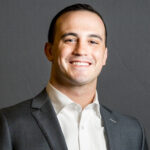 Astute, enthusiastic, proven leader with quantifiable successes.
Astute, enthusiastic, proven leader with quantifiable successes.
A highly adaptable critical thinker who is able to meet the needs of customers in order to provide the best possible service.
Able to employ creative approaches to exceed all designated objectives and close a deal.
Love the show? Subscribe, rate, review, and share!
Join the Medical Sales Podcast Community today:
